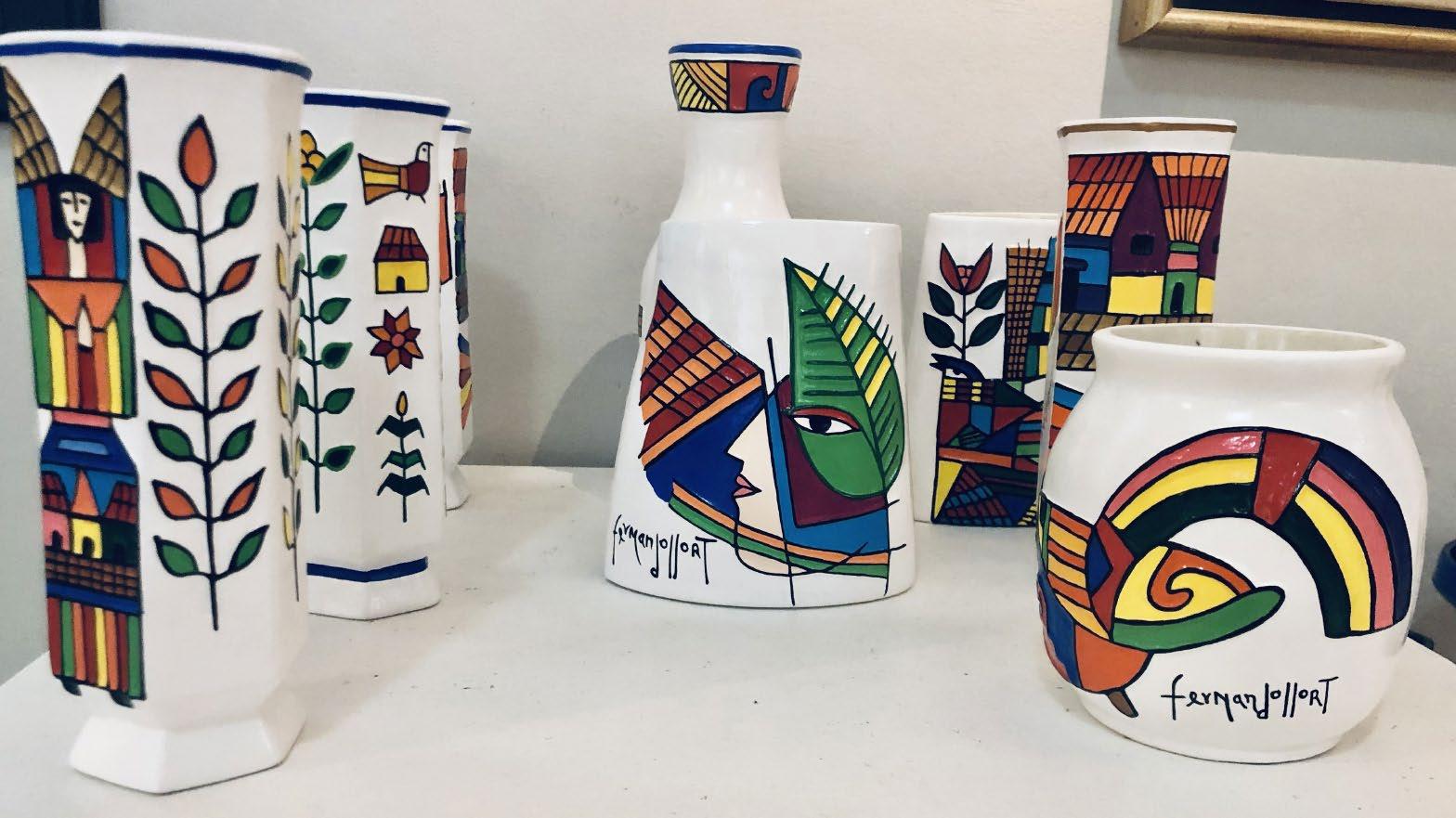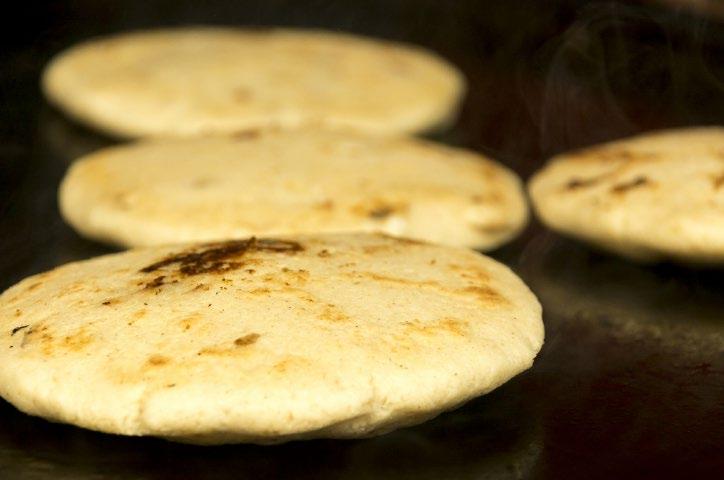
7 minute read
Principle Six Goes International Grass Valley to El Salvador
Principle Six Goes International:
Grass Valley to El Salvador
By Rebecca Torpie
In July, I accepted a USAID volunteer assignment through the National Cooperative Business Association’s Farmer-2-Farmer program to help a coffee cooperative in rural El Salvador expand their brand and increase market share into San Salvador and, ultimately, internationally. It was a great opportunity to practice the Sixth Cooperative Principle, Co-ops Helping Co-ops, and I looked forward to the adventure.
Cooperativa de Divino Salvador Youth Group

USAID is a government agency started by John F. Kennedy in 1961, signed through executive order to provide technical assistance to other countries to promote social and economic development. As the program has evolved, it continues its mission to expand democracy and assist foreign communities struggling to survive in free markets and help with disasters through partnering with volunteers with business skills like agriculture, agrotourism, finance and marketing. NCBA — National Cooperative Business Association — is one of nine NGOs that fund USAID to support the work. I was sent to Cooperativa de Divino Salvador, a rural coffee cooperative eight

miles from the border with Honduras to assess their marketing efforts, write a marketing strategy and create a new logo for them. The assignment would last two weeks and I had to rely on the local program officer, Juan, to translate my work. Marketing requires understanding nuances of the culture, so, this was going to be a challenge. I have years of experience in marketing consulting, but I’d never worked through a translator before. I was in new territory—literally and figuratively. Fortunately, Juan turned out to be a stellar interpreter, guide and local cultural expert. I spent the first two days acclimating in San Salvador, visiting the wonderful museum MARTE, getting a poignant glimpse into the civil war that took place between 1979-1992. That Monday, we headed on our two-and-a-half-hour trip up to La Palma, the main town nearest “la finca,” the coffee farm where we’d be working. We met with the coffee co-op — a wonderfully energetic group of about 30 people, half of them the parents, i.e. the farmers and half the “youth group,” the team that I would be working with on the marketing. The youth group consisted mainly of women and “kids” aged 15-30. They were exceptionally engaged in production and marketing activities, and they’d already applied for and received several pieces of coffeeprocessing equipment from NGOs and the government. It was clear from the get-go there were definitive leaders in the group who would be able to move this project forward further. We met for two days, the team learning some marketing fundamentals, as I gathered information in order to write the marketing strategy and create a new logo based on this information. And then I got sick. Really sick. We returned to San Salvador and I was diagnosed with Covid. I quarantined and continued to work. Juan and I regrouped — virtually. As I siloed in my Airbnb back in the city, I developed the marketing strategy. Some of the recommendations I made to the group were to secure their trademark, create a consistent marketing team meeting schedule and agenda, form an ongoing business partner contact list, and develop a customer service strategy. Further technical assistance projects that I suggested for future volunteers were budgeting and social media training. BriarPatch’s ultra-talented Marketing Assistant Seanan Maher created two logo options based on the limited information we gleaned. I made a video discussing the reasoning behind the logos and marketing tactics, providing lots of motivation for moving forward. Juan went back to La Palma two weeks later and delivered my video and strategy in person. Assignment completed. While the trip didn’t quite turn out as planned, it was a wonderful experience, and hopefully impactful for my new cooperative friends in La Palma.


Farmer Jose shows us one the of coffee roasters the co-op uses to make the finished product. Jose shows us different quality beans. These will be sold to be made into instant coffee. A stroll through the coffee plantation in La Palma Above: Logo design by Seanan Maher for Cooperativa de Divino Salvador



Modern Salvadoran History
The 12-year civil war that ravaged El Salvador 30 years ago remains part of the cultural fabric today. When you go into a Salvadoran home, chances are a photo of social justice champion Archbishop Óscar Arnulfo Romero hangs on the wall. His assassination while performing mass, and subsequent murders of funeral attendees in 1980, serves as a sober reminder of the horrors of war and the people’s faith for a better future for human rights in their country. In March 2022, the government declared a state of emergency — intending to crack down on gang violence after 62 murders were recorded in a single day — suspending

Archbishop Óscar Arnulfo Romero citizens’ constitutional rights and allowing police to stop anyone for any reason. Some police officers have said government officials have demanded arrest quotas in some areas of the country, and over 44,000 people have been detained since the declaration. The gangs and the government have ordered somewhat of a “truce” for the time being. Crime has decreased significantly in San Salvador in the past several years, making it much safer for residents, though an air of uneasiness about general freedoms obviously remains. For some, it’s described as a frightening double-edged sword.
Shade-grown coffee in the lush rainforest of El Salvador.
Llort’s art



Fernando Llort (1949-2018) is considered the national artist of El Salvador. He spent much of his creative time in La Palma, and the town is painted in inspiration of his work; you see references to his work all over the country. His son opened a small museum and gallery in his honor in San Salvador where you can screen print or paint items in the Llort style and purchase original art. His colorful, cubist, folk style invokes the history, joy and beauty of the country.

Photo Credit: “Fernando Llort, Premio Nacional de Cultura” by Juan Isolino Rosa is licensed under CC BY-SA 4.0. Hotel La Palma
Have You Tried Pupusas?

Pupusas (pronounced “poo-poo-suh”), the national dish of El Salvador and Honduras, are thick corn or rice flour skillet-cooked tortillas stuffed with loads of combinations of delicious fillings, from beans and cheese to chicharrónes (pork rinds). They are a staple street food and are an excellent, hearty breakfast prior to a mountain hike or city-scape excursion. Juan says pupusas are always eaten only for breakfast or dinner, never lunch, “kind of like how we don’t eat eggs in the middle of the day either.” Prior to current inflation, you could find them for 4 for $1. Now they are about $1 a piece, still a good deal for American tourists. Want to try making your own? Use this simple, cheese-stuffed recipe, then go from there with your favorite fillings. Makes 12 pupusas 1 1/2 cups masa harina ¾ tsp salt 1 1/3 cups water 1/2 cup of your favorite shredded cheese (the meltier, the better)
Vegetable oil, for cooking your pupusas In a bowl, stir together masa harina and salt. Pour in water and stir until it comes together. If it’s too dry, add water, 1 Tbsp at a time. Form dough into 2” balls, then flatten to about the size of a baseball. Put a Tbsp of cheese in the middle of the dough, then roll into a ball again. Flatten again. Heat oil in a skillet (preferably cast iron). Once hot, cook for 5-7 minutes on each side, until you see nice, brown char marks. Flip and repeat. Eat immediately, but be careful, they’re hot! Enjoy with curtido, a fermented cabbage slaw, and salsa. WildBrine Salsa Roja has a nice, fermented flavor that’s good with pupusas. Get the curtido recipe here.

Pupusas may not look that fancy, but they’re cheesy and delicious! Stuffed with Salvadoran cheese (something like a young, mild cheddar) and loroco, a traditional Salvadoran flower that tastes a bit like squash or spinach — classic combination. 27








